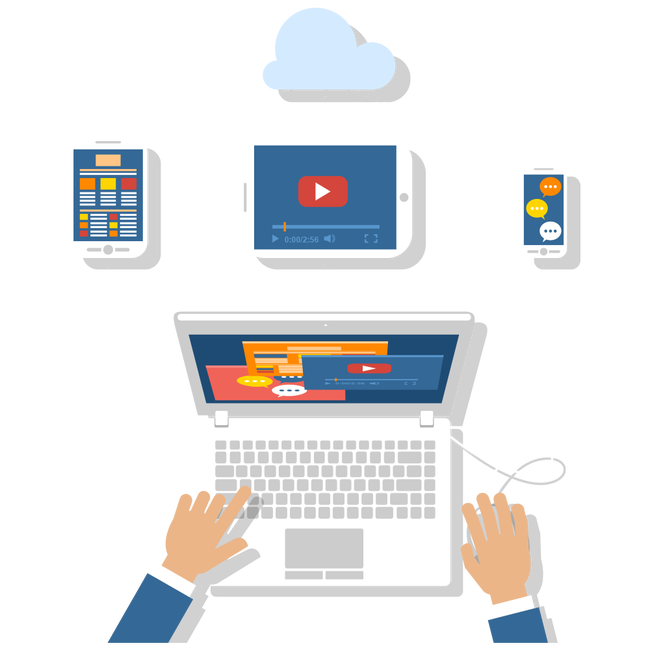Step-by-Step: How to Reach the Right Audience with the Right Products
✅ 1. Understand Your Product Clearly
Before promoting anything, you must know:
What problem your product solves
Who will benefit the most from it
What makes it different or better than competitors
👉 Example: If you’re selling trekking gear, your ideal customers are adventure travelers and outdoor enthusiasts.
✅ 2. Define Your Target Audience
Use these filters to identify your audience:
Age group
Location
Gender (if relevant)
Interests and hobbies
Online behavior
Income level
Problems they are facing (related to your product)
👉 Example: Age 20–40, located in Nepal or nearby countries, interested in travel, hiking, and nature.
✅ 3. Create Buyer Personas
A buyer persona is a fictional representation of your ideal customer.
Example:
“Ravi, 28 years old, lives in Pokhara, loves trekking on weekends, follows adventure influencers on Instagram, and shops online.”
Creating personas helps you choose the best content, tone, and platforms to target.
✅ 4. Choose the Right Marketing Channels
Pick the channels your audience spends most time on:
🌐 Google Search/SEO → For people actively searching for your product
📱 Social Media (Instagram, Facebook, TikTok) → For visual or lifestyle products
✉️ Email Marketing → For nurturing leads and repeating sales
📢 Paid Ads (Google Ads, Facebook Ads) → For precise targeting
👉 Example: Facebook Ads can target people who recently traveled to the Himalayas or liked outdoor gear pages.
✅ 5. Craft Personalized Messages and Content
Create content that speaks directly to your audience’s needs, desires, or problems.
Types of content:
How-to videos or tutorials
Product demos
Testimonials & reviews
Problem-solving blog posts
Offers and promotions
👉 Example: A short video showing how your trekking backpack fits everything + customer review.
✅ 6. Use Targeted Advertising (Smart Audience Targeting)
Paid ads let you target based on:
Age, gender, location
Interests and behaviors
Devices they use
Lookalike audiences (people similar to your existing buyers)
Retargeting (ads for people who visited your website before)
👉 Tools:
Facebook Ads Manager
Google Ads Audience Manager
LinkedIn Ads (for B2B products)
✅ 7. A/B Test and Optimize
Always run 2 or more variations of your ads/posts to see which one works best.
Test:
Different headlines
Images vs videos
Call-to-actions (e.g., “Buy Now” vs “Learn More”)
👉 Result: Over time, you’ll see what your audience responds to best.
✅ 8. Track and Analyze Everything
Use analytics to see:
Who’s clicking your ads
What content gets the most engagement
What platforms are converting best
Where visitors drop off
👉 Tools to use:
Google Analytics
Facebook Insights
Hotjar (for user behavior)
UTM links to track sources
✅ 9. Retarget and Nurture
Most people don’t buy right away. Use retargeting ads and follow-up emails to stay in their mind.
👉 Example:
Day 1: They visit your product page
Day 3: They see a reminder ad with a limited-time discount
Day 5: You email them a testimonial or blog
🔁 Bonus Tip: Focus on Value, Not Just Selling
Instead of just pushing products, provide value:
Helpful tips
Entertaining content
Behind-the-scenes videos
Community interaction
This builds trust and long-term loyalty, which is key in digital marketing.
📦 Summary Table
Step What to Do Tools
1. Understand Product Identify benefits Google Docs, Mind Maps
2. Define Audience Demographics, interests Facebook Audience Insights
3. Buyer Persona Create ideal customer Canva, Notion
4. Right Channels Choose platforms Google Ads, Facebook, Instagram
5. Personalized Content Tailor messaging Canva, ChatGPT, CapCut
6. Targeted Ads Precise targeting Ads Manager, Google Ads
7. A/B Testing Test different versions Google Optimize, Ads Manager
8. Analyze & Track Monitor performance Google Analytics, Hotjar
9. Retarget & Nurture Follow-up strategy Mailchimp, Facebook Pixel


